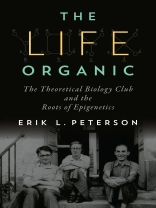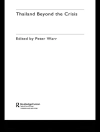As scientists debated the nature of life in the nineteenth century, two theories predominated: vitalism, which suggested that living things contained a "vital spark, " and mechanism, the idea that animals and humans differed from nonliving things only in their degree of complexity. Erik Peterson tells the forgotten story of the pursuit of a Third Way in biology, known by many names, including "the organic philosophy, " which gave rise to C. H. Waddington's work in the subfield of epigenetics: an alternative to standard genetics and evolutionary biology that captured the attention of notable scientists from Francis Crick to Stephen Jay Gould. <i>The Life Organic</i> chronicles the influential biologists, mathematicians, philosophers, and biochemists from both sides of the Atlantic who formed Joseph Needham's Theoretical Biology Club, defined and refined Third-Way thinking through the 1930s, and laid the groundwork for some of the most cutting-edge achievements in biology today. By tracing the persistence of organicism into the twenty-first century, this book also raises significant questions about how we should model the development of the discipline of biology going forward.
O autorze
<b>Erik L. Peterson</b> is assistant professor of history at the University of Alabama.












